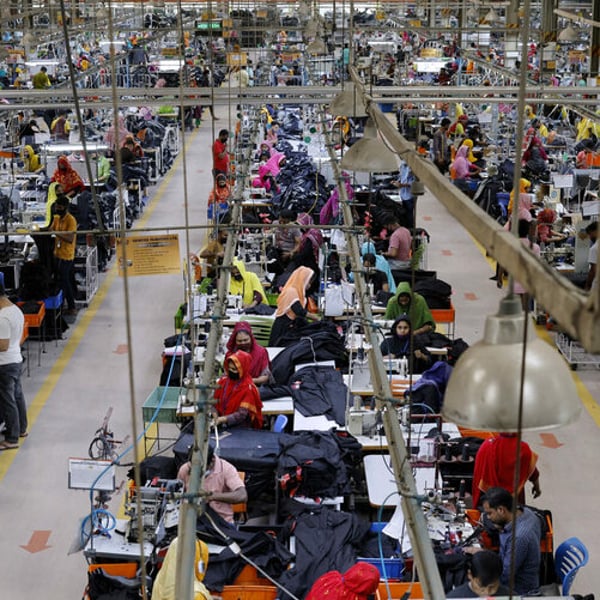By
Bloomberg
Published
April 6, 2025
ThredUp Inc. Chief Executive Officer James Reinhart gave a colleague a high five shortly after President Donald Trump’s overhaul of US trade policy earlier this week—a reaction very different from those of other consumer-company executives hammered by the announcement.

The impetus was the Trump administration’s ending of a loophole that has boosted fast-fashion companies in China and Hong Kong. The loophole allowed companies like Shein and Temu to ship small packages without import duties.
When the ‘de minimis’ exemption concludes on May 2, the cost of apparel sold by Shein and its peers will rise, making merchandise from resale retailers ThredUp and RealReal Inc. potentially more competitive. Discount retailers such as TJX Cos. and Ross Stores Inc. also stand to benefit.
It’s a rare moment of optimism for resale firms, which have been pummeled recently as profitability and performance have missed expectations.
“This is a great time to prove that they can accelerate growth and drive profitability,” said Poonam Goyal, a Bloomberg Intelligence analyst. “This is their time to shine.”
ThredUp has gained slightly since Trump’s announcement on Wednesday versus steep declines for much of the apparel industry. The company’s stock has dropped more than 80% since it went public in 2021.

ThredUp sells resale items, including sweatshirts, handbags, and shoes, with an average price tag between $20 and $25. Shein and Temu sell many products in a similar range, as well as lower-cost items, although their merchandise is primarily new.
Executives at Thredup have lobbied against the ‘de minimis’ loophole for years. In a statement this week, the company said, “We believe that making fast fashion more expensive will incentivize consumers to choose quality, durability, and secondhand options.”
After giving his colleague a high five, “I said ‘let’s go,’” Reinhart said in an interview. “Let’s go make a statement about why we’re pleased to see this finally come to fruition.”
Trump’s tariffs on China, Vietnam, Cambodia, and other countries where much US-bound apparel is produced may give companies like ThredUp, RealReal, and Poshmark Inc., an online marketplace for used goods owned by South Korean internet company Naver Corp, a further edge.
“Our supply chain is domestic,” Reinhart said. “Potentially, it allows us to be an outlier around performance over the next few quarters.”
He added that the surge in demand for cheap items from Shein and other competitors, which “helped crowd out some of the resale opportunity,” will potentially be reversed.
TJX, which operates the TJ Maxx and Marshalls chains, is also well positioned since it buys excess inventory from other retailers in the US rather than sourcing them from abroad. It has another advantage in that its retail chains sell new clothes—a much bigger market than used apparel.
“Tariffs are likely to create significant disruption in the market, greatly increasing the availability of products to off-pricers at attractive prices,” Citi analyst Paul Lejuez wrote in a note to clients on Thursday. “A potentially weakening consumer environment will mean more consumers are likely to trade down to the off-price channel in search of value.”




